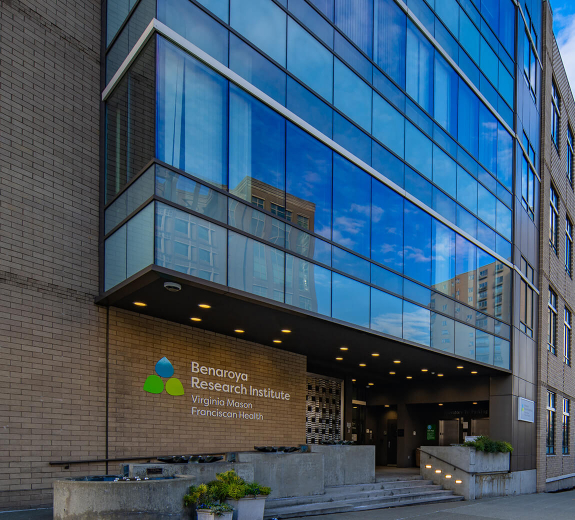Scientist at Benaroya Research Institute Uncovers Novel Immune System
Discovery of a New, Adaptive Immune System Published in Nature
Chris Amemiya, Ph.D., Director of the Genome Resource Center at Benaroya Research Institute (BRI) at Virginia Mason performed experiments for research included in a paper in the July 8 issue of Nature, titled 'Somatic diversification of variable lymphocyte receptors in the agnathan sea lamprey' along with researchers from University of Alabama and the University of Michigan. The findings explain the discovery of a novel immune system operating in a vertebrate organism called the sea lamprey.
Amemiya used genomics resources and reagents he developed for the sea lamprey (a primitive, jawless vertebrate species) to demonstrate that this organism uses a completely different genetic and molecular toolkit in order to deal with infection. That is, whereas humans use molecules such as antibodies for their "adaptive" immune response, the lamprey uses a completely novel gene system in order to respond to immune challenges. These findings go against dogma concerning the mechanisms involved in adaptive immunity and raise the possibility that other systems may have originated in diverse organisms (such as many invertebrates) to deal with pathogenic challenges.
"The implications from these findings are far-reaching, particularly with regard to our understanding of the genetic underpinnings of a complex biological system. That is, it shows us that in the absence of the cardinal elements needed for an immune system like ours, Mother Nature can improvise with and recruit other molecules in order to mold an alternative and equally effective defense system. The work certainly presents many new possibilities for scientific and biotechnological research." Amemiya said.
"Genomics-based experiments are now driving biological inference in many disparate fields. The finding of a new immune system was entirely unexpected yet it is just the kind of discovery that genomics affords and could open up an entirely new area of study," continued Amemiya. "It is very exciting for investigators like me who have been using non-conventional experimental models for a long time."
The Benaroya Research Institute at Virginia Mason is a non-profit research institute focusing on molecular and cell biology of diabetes, arthritis, immunology, genomics, cardiovascular research and cancer, with a clinical research program which conducts approximately 150 clinical trials every year. Virginia Mason Medical Center, founded in 1920, is a non-profit comprehensive regional health care system that combines a primary and specialty care group practice of nearly 400 physicians with a 336-bed acute care Seattle hospital.



